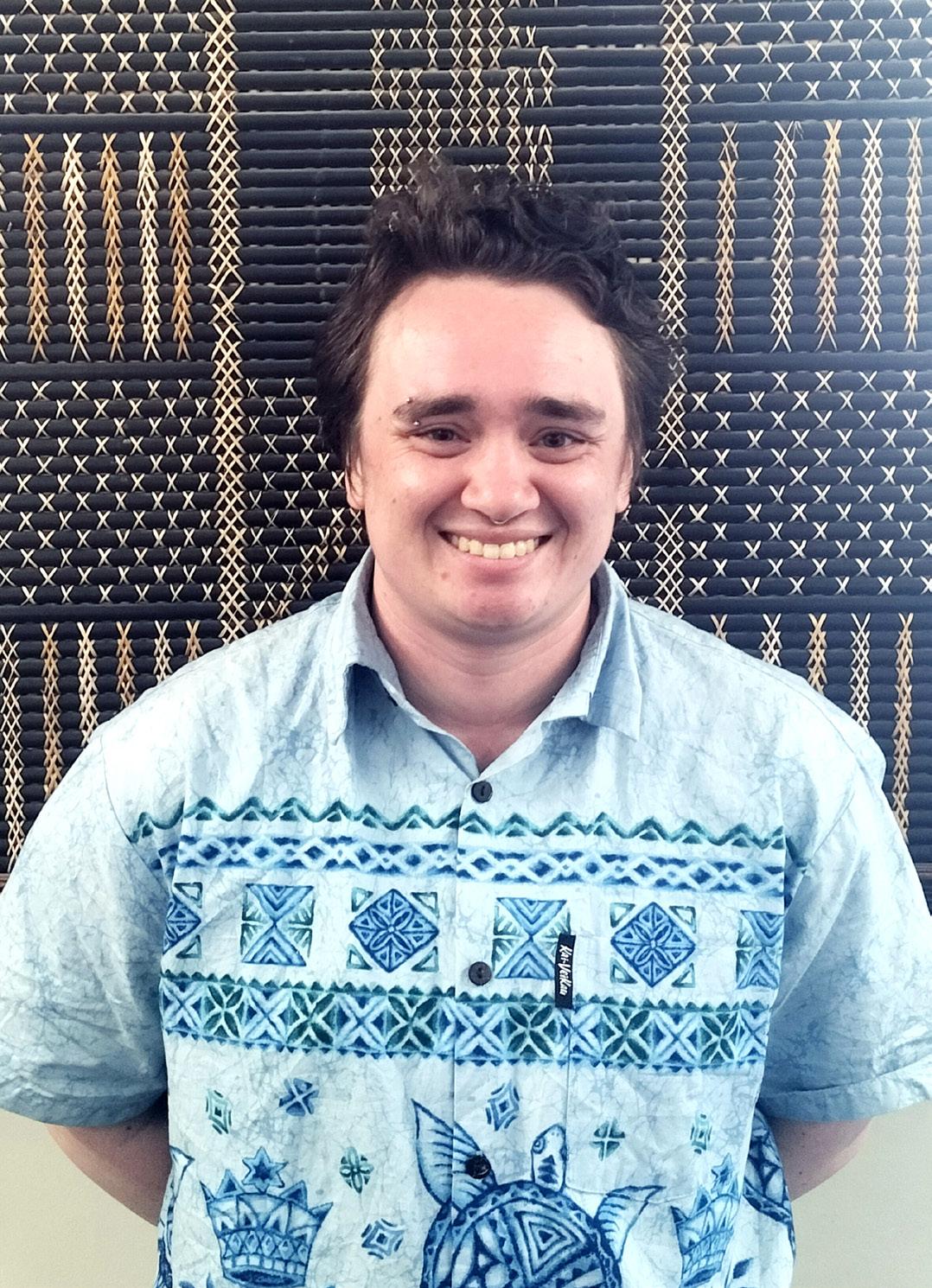
5 minute read
Kupe Scholarship recipient shares aspirations for bicultural education
Each year, 30 prestigious Kupe Scholarships are offered to dedicated and high-achieving Māori and Pacific students. The scholarship is designed to attract and support them into the teaching profession. Education Gazette talks to 2025 recipient Kapowairangi Curtis (Ngāti Rongomai, Ngāti Pikiao, Te Arawa) about growing up in a whānau of teachers, a fascination with star gazing and te taiao, and what the scholarship means.
With a passion for science and mathematics, were you an inquisitive child?
I was a very inquisitive child, a trait that was fostered in me by my family. When I asked why, I was always given the answer or encouraged to find it myself – something I plan to replicate with my students.
What are the benefits and/or challenges you believe come from growing up immersed in te ao Māori, while embracing and excelling in the mainstream education system?
I was educated almost entirely in Māori medium whānau units within larger schools.
The result was a deeply bicultural education that has given me an optimism for a bicultural Aotearoa.
Within the cultural safety and Māori values of the whānau spaces, I had a solid base from which to explore academic spheres. This continued in my university experience, where I decided to do a Bachelor of Arts on top of my Bachelor of Science because there was enough room for te reo Māori and Māori Studies papers in the BSc.
My space within the Māori department and Māori students’ association was crucial for my resilience and wellbeing to pursue a science degree where I was the only Māori student in my major.
You’re a gifted writer, who has won awards for short story telling. Where was this gift nurtured?
When I was little, my mum gave me an exercise book for me to write and draw my feelings – I think this is where my love for writing began. Before long, I had a notebook I carried everywhere to jot down ideas and doodles and short poems. As I grew older, I found writing an excellent way to work through not only my feelings but my ideas and understanding of the world. The short story I won an award for was written after an upsetting racist encounter with a friend, to process my thoughts and feelings about it.
You’re currently studying towards your Diploma in Secondary School Teaching. With very obvious lived experience, when did you realise that you wanted to pursue a career in teaching?
Teaching has always been on my horizon. I come from a family of teachers, including the late Sir Toby Curtis, who was knighted for services to Māori education.
On top of the family proclivity for teaching, I have always found myself a bit of a teacher, helping other students in class and tutoring as I got older.
I have also been deeply motivated by the experiences of my peers who weren’t served so well by the education system. While my experience of the education system was largely successful, I was witness to too many of my friends (especially Māori and Pacific) being undervalued and dismissed by teachers who weren’t interested in understanding them or helping them learn in ways that worked for them.
It is clear that you possess many of the attributes of the great navigator Kupe. With a science degree majoring in astronomy, when did your fascination with star gazing and te taiao begin?
We have been gazing at the stars since we learned to look up, I think. I have certainly been blessed with many a night tramping in high country away from light pollution, and there is no sight quite like a night sky on a clear moonless night.
However, as a young teenager I considered all of that far too far away to be relevant enough to study – we’ve got plenty to learn right here on earth!
But I fell in love with science in high school and took three science subjects in Year 11 including earth and space science. It was an astronomy documentary by Brian Cox about Jupiter’s moons that got me hooked. I became obsessed with Europa and then astronomy, leading me to my time at the University of Canterbury.
What does being one of the recipients of the Kupe Scholarship mean to you and what do you hope this will mean for the ākonga privileged enough to be in one of your classrooms?
In the simplest terms, it has meant I have been able to reduce my stress while I’ve been studying this year. Without a scholarship, I would have had to get a part-time job to be able to afford living costs while studying full-time, which would have reduced my capacity to engage fully in my teaching study.
Beyond that, it is an honour to be recognised as a highachieving Māori student teacher, especially in the area of science and mathematics.
I had no Māori or Pacific teachers in my secondary maths and science education and was made to feel that my Māoritanga was not relevant to my scientific study. I hope that as a Māori science and mathematics educator, I can show ākonga that te reo Māori and te ao Māori has a place everywhere, including in science and maths classrooms.
Kupu | Vocabulary
Kupe: A legendary Polynesian navigator
Te taiao: The natural world, environment
Te ao Māori: The Māori worldview
Whānau: Family
Māoritanga: Māori identity, culture, or way of life
Ākonga: Students, learners










